Related Research Articles

Mind Games is the fourth studio album by English musician John Lennon. It was recorded at Record Plant Studios in New York in summer 1973. The album was released in the US on 29 October 1973 and in the UK on 16 November 1973. It was Lennon's first self-produced recording without help from Phil Spector. Like his previous album, the politically topical and somewhat abrasive Some Time in New York City, Mind Games received mixed reviews upon release. It reached number 13 in the UK and number 9 in the US, where it was certified gold.

Rock 'n' Roll is the sixth studio album by English musician John Lennon. Released in February 1975, it is an album of late 1950s and early 1960s songs as covered by Lennon. Recording the album was problematic and spanned an entire year: Phil Spector produced sessions in October 1973 at A&M Studios, and Lennon produced sessions in October 1974 at the Record Plant (East). Lennon was being sued by Morris Levy over copyright infringement of one line in his song "Come Together". As part of an agreement, Lennon had to include three Levy-owned songs on Rock 'n' Roll. Spector disappeared with the session recordings and was subsequently involved in a motor accident, leaving the album's tracks unrecoverable until the beginning of the Walls and Bridges sessions. With Walls and Bridges coming out first, featuring one Levy-owned song, Levy sued Lennon expecting to see Lennon's Rock 'n' Roll album.
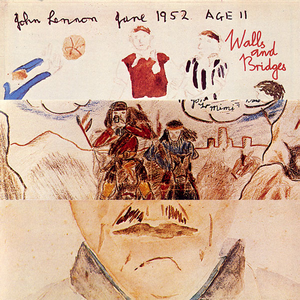
Walls and Bridges is the fifth studio album by English musician John Lennon. It was issued by Apple Records on 26 September 1974 in the United States and on 4 October in the United Kingdom. Written, recorded and released during his 18-month separation from Yoko Ono, the album captured Lennon in the midst of his "Lost Weekend". Walls and Bridges was an American number-one album on both the Billboard and Record World charts and included two hit singles, "Whatever Gets You thru the Night" and "#9 Dream". The first of these was Lennon's first number-one hit in the United States as a solo artist, and his only solo chart-topping single in either the US or Britain during his lifetime.

Live Peace in Toronto 1969 is a live album by the Plastic Ono Band, released in December 1969 on Apple Records. Recorded at the Toronto Rock and Roll Revival festival, it was the first live album released by any member of the Beatles separately or together. John Lennon and his wife Yoko Ono received a phone call from the festival's promoters John Brower and Kenny Walker, and then assembled a band on very short notice for the festival, which was due to start the following day. The band included Eric Clapton, Klaus Voormann, and drummer Alan White. The group flew from London, and had brief unamplified rehearsals on the plane before appearing on the stage to perform several songs; one of which, "Cold Turkey", was first performed live at the festival. After returning home, Lennon mixed the album in a day.

"Good Golly, Miss Molly" is a rock 'n' roll song first recorded in 1956 by American musician Little Richard and released in January 1958 as Specialty single 624, and later on Little Richard in July 1958. The song, a jump blues, was written by John Marascalco and producer Robert "Bumps" Blackwell. Although it was first recorded by Little Richard, Blackwell produced another version by the Valiants, who imitated the fast first version recorded by Little Richard, not released at that time. Although the Valiants' version was released first, Little Richard had the hit, reaching No. 4. Like all his early hits, it quickly became a rock 'n' roll standard and has subsequently been recorded by hundreds of artists. The song is ranked No. 94 on the Rolling Stone magazine's list of the 500 Greatest Songs of All Time.
John Lennon's jukebox is a KB Discomatic jukebox made in the UK using a Swiss-made mechanism which Lennon bought in 1965. Lennon filled it with forty singles to accompany him on tour. John Lennon's Jukebox also refers to the compilation CD album closely based on the jukebox's musical contents.
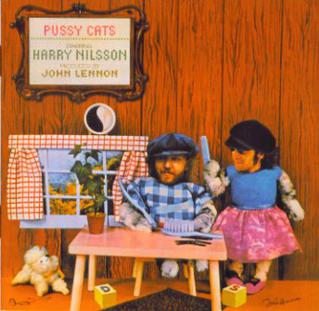
Pussy Cats is the tenth album by American singer Harry Nilsson, released by RCA Records in 1974. It was produced by John Lennon during his "Lost Weekend" period. The album title was inspired by the bad press Nilsson and Lennon were getting at the time for being drunk and rowdy in Los Angeles. They also included an inside joke on the cover – children's letter blocks "D" and "S" on either side of a rug under a table − to spell out "drugs under the table" as a rebus.
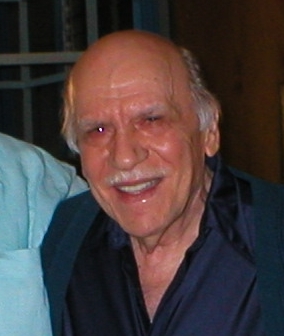
John S. Marascalco was an American songwriter most noted for the songs he wrote for Little Richard. He was born in Grenada, Mississippi and died in Los Angeles, California.
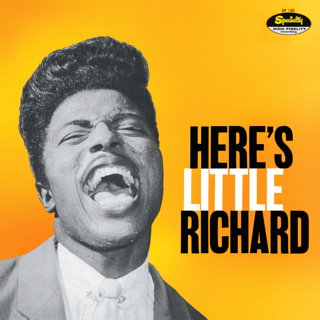
Here's Little Richard is the debut album by American musician Little Richard, released on March 4, 1957. Promoted as "six of Little Richard's hits and six brand new songs of hit calibre", the album compiles many of the A-sides and B-sides from Richard's hit singles including the Billboard top 40 entries "Tutti Frutti", "Long Tall Sally", "Slippin' and Slidin'", "Rip It Up" and "Jenny, Jenny" and the top 10 Rhythm and Blues Best-Sellers hits "Ready Teddy", "She's Got It" and "Miss Ann".

The song "Hey-Hey-Hey-Hey", also known as "Hey-Hey-Hey-Hey! ", was written by Little Richard and recorded on May 9, 1956 at J&M Studio, New Orleans, Louisiana,.
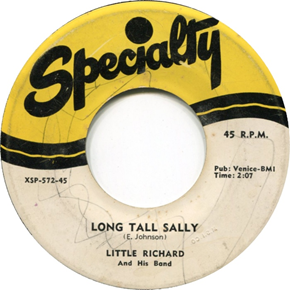
"Long Tall Sally", also known as "Long Tall Sally (The Thing)", is a rock and roll song written by Robert "Bumps" Blackwell, Enotris Johnson, and Little Richard. Richard recorded it for Specialty Records, which released it as a single in March 1956, backed with "Slippin' and Slidin'".

"Whatever Gets You thru the Night" is a song written by John Lennon, released as a single in 1974 on Apple Records, catalogue number Apple 1874 in the United States and Apple R5998 in the United Kingdom. It peaked at No. 1 on all three record charts: Billboard Hot 100, Cashbox, and Record World, and at No. 36 in the UK. It was the lead single for Lennon's album Walls and Bridges; in the UK the single was released on the same day as the album. "Whatever Gets You thru the Night" was Lennon's only solo No. 1 single in the United States during his lifetime, and he was the last member of the Beatles to top the charts.In Canada, the single spent two weeks at No. 2, and became the 30th biggest hit of 1974.

Tutti Frutti is a song written by Little Richard and Dorothy LaBostrie, recorded in 1955, which was his first major hit. With its energetic refrain, often transcribed as "A-wop-bop-a-loo-mop-a-lop-bam-boom!", and its hard-driving sound and wild lyrics, it became not only a model for many future Little Richard songs, but also for rock and roll itself. The song introduced several of rock music's most characteristic musical features, including its loud volume, powerful vocal style, and distinctive beat and rhythm.

"Woman Is the Nigger of the World" is a song by John Lennon and Yoko Ono with Elephant's Memory from their 1972 album Some Time in New York City. Released as the only single from the album in the United States, the song sparked controversy at the time due to the use of the word "nigger" in the title.

Eskew Reeder, Jr., usually known by the stage name Esquerita, and occasionally as S.Q. Reeder or The Magnificent Malochi, was an American R&B singer, songwriter and pianist, known for his frenetic performances. He has been credited with influencing rock and roll pioneer Little Richard.

"Lucille" is a 1957 rock and roll song originally recorded by American musician Little Richard. Released on Specialty Records in February 1957, the single reached number 1 on the Billboard R&B chart, 21 on the US pop chart, and number 10 on the UK chart. It was composed by Albert Collins and Little Richard. First pressings of Specialty 78rpm credit Collins as the sole writer. Little Richard bought half of the song's rights while Collins was in Louisiana State Penitentiary.

Little Richard's Greatest Hits is an album of Little Richard songs re-recorded in 1964 and first released in the US by Vee-Jay Records in January 1965. It features updated versions of twelve of his best-known songs originally recorded in the 1950s for Specialty Records. Some of these re-recordings use different musical arrangements, including unusual syncopation, tambourine and jazz horns.

Roots: John Lennon Sings the Great Rock & Roll Hits is a rare mail-order album issued by Adam VIII consisting of rough mixes of John Lennon's Rock 'n' Roll album. It was available through television sale for three days in January 1975 before Lennon and Apple/EMI pulled it off the market. Lennon then rush-released his "official" version in February 1975.

"Sisters, O Sisters", also known as "Sisters O Sisters", is a song written by Yoko Ono that first appeared on John Lennon's and Yoko Ono's 1972 Plastic Ono Band album Some Time in New York City, backed by Elephant's Memory. It was also released as the b-side to the couple's "Woman Is the Nigger of the World" single. It has been covered by a number of artists, including Le Tigre and Tater Totz.
S.I.R. John Winston Ono Lennon is a bootleg album of rehearsals before a concert of British musician John Lennon and his wife Yoko Ono, recorded in studio in late August 1972.
References
- ↑ Vera, Billy. The Specialty Story 1944-1964 (Media notes). Various. Berkeley, California: Specialty Records. pp. 10, 11. 5SPCD-4412-2.
- ↑ "Send Me Some Lovin'". Second Hand Songs.
- ↑ John Blaney (6 June 2005). John Lennon: Listen to This Book. John Blaney. pp. 164–. ISBN 978-0-9544528-1-0 . Retrieved 4 November 2011.